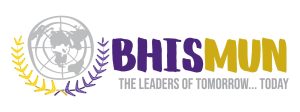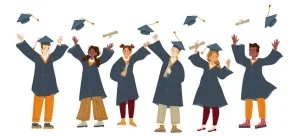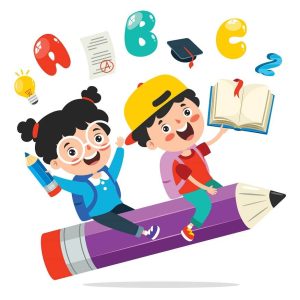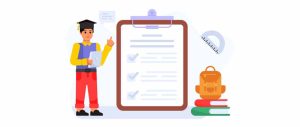How to Conduct a Successful Interview for a School Project

One of the most fascinating aspects of school projects can be conducting interviews. They teach students organisation, communication, and confidence in addition to helping them obtain information from first-hand experience. The quality of your project can significantly change if you know how to conduct an interview correctly. Along with improving your research techniques and developing insightful interview questions, let’s walk through the process of conducting an interview for a school project step-by-step.
Importance of Interviews in School Assignments
For school work, relying only on books or the internet limits knowledge. Direct discussions with experts or members of the community are made possible through interviews, which provide a true human factor. This method improves research abilities and offers real-world viewpoints, which makes your school project interviews more interesting and significant.
Some benefits of interviews are:
- Provides a Human Touch: Interviews blend learning with real voices and experiences.
- Improves Research Skills: Speaking with experts broadens your understanding of subjects.
- Brings Facts to Life: Personal experiences create meaningful and engaging classroom work.
How To Prepare for Effective Interview Questions
It requires preparation to generate effective interview questions. Open-ended enquiries, such as “What inspired you to choose this career?” or “How has technology changed this field?” are preferable to yes-or-no queries. These promote thorough responses and natural dialogue flow. Effective interviewing for school project is made easier by carefully planned interview questions that showcase your research expertise.
- Avoid Closed enquiries: Ignore enquiries that have a “yes” or “no” response.
- Use Open-Ended Questions: Request carefully thoughtful answers.
- Show Topic Knowledge: Make sure your enquiries take into account earlier studies.
- Keep It Short: For targeted conversations, stick to no more than 8–10 questions.
How to Start the Interview Process?
The secret to a successful interview is preparation. Prepare your questions and do a little homework on the subject. This increases confidence, sharpens research abilities, and guarantees that your discussion has purpose.
- Conduct background research: Get familiar with basic concepts and appropriate examples of your subject.
- List the Important Points: Highlight the areas that require further explanation.
- Prepare in advance: Practice your questions so you can communicate properly and successfully.
- Maintain Organisation: Prepare your questions, notes, and recorder.
Important to find the right guide.
Choosing a knowledgeable person will decide the effects of your school assignment. Select people who have personal experience related to your subject. This guarantees that your interview for the school assignment is knowledgeable, improves research abilities, and enhances the content.
- Find Reliable Sources: Pick individuals who have personal experience.
- Obtain Real Experiences: Get understanding experiences from real people.
- Verify Reliability: Make sure that the information is correct.
- Ensure Topic is Relevant: Connect the person’s experience to your project.
Show consideration for the interviewer.
Be respectful and professional when reaching out to someone for your assignment. Clearly state the goal and reason behind your selection. A positive response is more likely when communication is done with respect. You can maintain your confidence and calmness during an interview by practicing your interviewing techniques in advance.
- Be Respectful and Polite: Begin with a warm greeting.
- Clearly State Your Goal: Describe the value of their insights.
- Express gratitude: Say thank you for their time.
- Get Ready: Arrange the conversation in order to be assured and organised.
How to Master an Interview
Asking questions is only one part of conducting a successful interview. Before you begin your interview questions, set up a relaxed atmosphere, introduce yourself, and describe your goal. Pay close attention, make notes or record (if permitted), and act professionally at all times. Interviews are also helping students to develop their communication and research abilities for academic projects.
- Establish a Friendly Environment: Introduce yourself politely and make your goal understandable right away.
- Pay attention and take notes: Listen carefully to responses, make notes on important points, or record the conversation.
- Continue to Act Professionally: Remain focused, be respectful, and refrain from distractions.
- Develop Understanding While Collecting Information: Improve your communication and research skills throughout the interview.
Steps to take after the interview
Once the interview is over, go over your notes to make sure you remember the most essential sentences and points. Give your interviewee a brief note of gratitude. Make a connection between their responses and your study to give your school project more substance. Examine the procedure to determine what went well and what could be done better the next time.
- Review Your Notes: Go over your notes and make a list of the main points.
- Highlight Quotes: Choose memorable or practical sayings.
- Thank the interviewee: Show your appreciation by sending them an email or a note.
- Combine Responses: Link the answers to the results of your study.
- Think about it: Consider how to make future interviews better.
How Interviews Improve Your Research Skills
Interviews improve research skills by teaching you to listen carefully, ask meaningful questions, and think critically. You work with real opinions instead of just textbooks, which build curiosity, communication, and fact-checking abilities for school projects. These abilities also get you ready for further education and eventual employment.
- Pay attention and give feedback: Listen carefully and critically to the responses.
- Ask Thoughtful Questions: Create enquiries that elicit thorough and insightful answers.
- Use Actual Knowledge: Don’t only use books; use real opinions and supporting material.
- Develop Your Future Research Skills: Creates skills that are beneficial in both the workplace and higher education.
Presenting Your Project’s Interview
After the interview, clearly arrange the information that was collected. Make use of direct quotes, paraphrases, or brief entries, and include the name, background, and significance of the speaker. Whether in a paper, slideshow, or video, a well-organised and easily understood presentation shows your learning and preparation. Presenting the interview well improves the quality of your school assignment.
- Arrange Data Clearly – Answers should be arranged properly for easy understanding.
- Add Important Information – Bring up the name, experience, or importance of the interviewee.
- Make use of quotes or paraphrases – For clarity, combine direct remarks with descriptions.
- Concentrate on preparation and learning –Show how your research abilities and efforts are reflected in your interview.
- Make sure it looks good –The video, slideshow, or report is clear and simple to follow.
Typical Errors to Avoid in Interviews for School Projects
During interviews, even well-prepared students might make mistakes. Common mistakes include failing to check recording equipment, taking insufficient notes, or forgetting follow-up questions. Make sure you have extra questions prepared, test your tools, and confirm the interview time. Compared to memory alone, written notes are more trustworthy. Find information from these mistakes will increases your ability to conduct research and conduct interviews for school projects.
- Examine your equipment- Before beginning, test any audio or video tools.
- Make Detailed Notes- Don’t rely just on your memory; instead, write down important details.
- Get additional questions ready- In the event that the conversation concludes early, prepare some follow-up questions.
- Verify the information- To prevent confusion, review the interview schedule one more time.
- Learn from Mistakes- To strengthen your skills and research for interviewing for school projects in the future, consider your mistakes.
The Role of Confidence in Interviewing
When it comes to school project interviews, confidence is essential. To ease nervousness and make your project look professional, be well-prepared, understand your subject, and communicate clearly.
- Prepare: Practice your questions beforehand.
- Know Your Subject: Being familiar calms stress.
- Communicate Clearly: Speak with confidence and respect.
- Be Professional: Trust in yourself improves the overall impression of your project.
Conclusion
Learning how to conduct an interview is an experience that encourages knowledge, patience, and curiosity rather than just performing a task. Students research the true stories behind textbook theory by conducting interviews for a class project. It improves their capacity for independent thought, increases their knowledge, and strengthens their research abilities. Any school project is made to stand out with well-crafted interview questions, careful planning, and friendly communication. Therefore, the next time you are given one, regard the interview as an opportunity to get knowledge that is actually important rather than as a formality.
Students at Billabong High International School (BHIS) develop their critical thinking, confidence, and research skills through school projects. Discover our programs—get in touch with us today!













